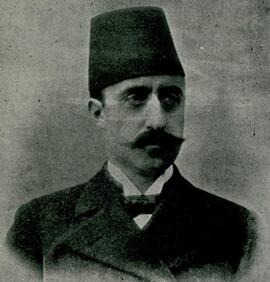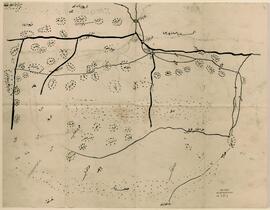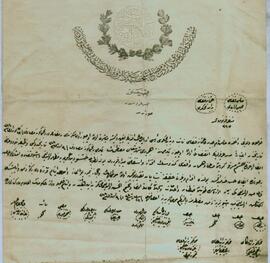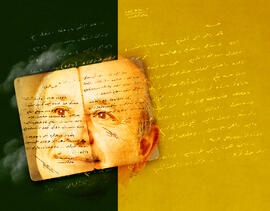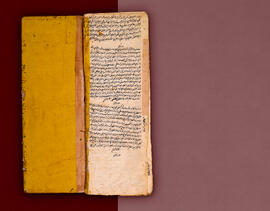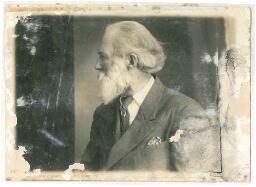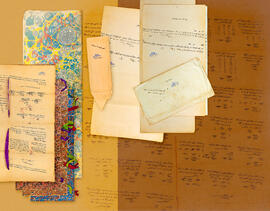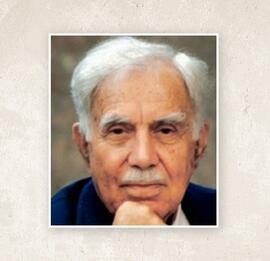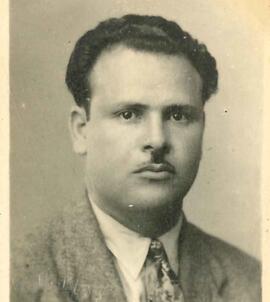Yusuf İzzeddin'in eşleri, çocukları ve Tevfik Biren ve eşi Necla Biren arasındaki yazışmaları ve harcama kalemlerini gösteren makbuzları içermektedir. Gelirlerin aile fertleri arasındaki taksimi, yapılan harcamalar, malların idaresi gibi konular etrafında dönen Evrak 4.048 belgeden müteşekkil olup 1.330 dosyada tasnif edilmiştir.
Yusuf İzzeddin Efendi AilesiVeysel Paşa Evrakı, Osmanlı Devleti’nin son dönem müşirlerinden olan Veysel Paşa (1866-1892) ve oğlu Ali Rıza Paşa’ya (1901-1923) aittir. Evrak koleksiyonu paşaların, Balkanlar’da Manastır, Prizren, Yakova, İpek ve Kosova bölgelerindeki idari, askerî ve siyasi faaliyetleri ile şahsi işlerine dair yazışmalardan oluşmaktadır. 1866-1923 tarih aralığındaki fon, 141 belge, bir klasör ve 85 dosyada tasnif edilmiştir.
_Asılları İstanbul Müftülüğü Meşihat Arşivi’nde bulunan 6835 şahıs dosyasının dijitalleri, İSAM Kütüphanesi Arşivi’nde incelenebilmektedir. Dosyalar, şeyhülislamlık makamına bağlı olarak farklı kaza, bölge ve kademelerde görev yapan memurlara ait hâl tercümeleri, icazetname, nüfus ve maaş belgeleri gibi değişik birçok belgeden oluşmaktadır. Dosyaların bazıları sadece zarftan ibaret olup hâl tercümeleri bulunmamaktadır.
_Özbek asıllı, Türk tarihçi ve siyaset bilimcisi Timur Kocaoğlu (1947-) Colombia Üniversitesi’nde doktora tezini savunan ilk Özbek ilim adamıdır.
Fon içerisinde Timur Kocaoğlu’na ait çok sayıda akademik çalışma, şahsi yazışma ve evrak bulunmaktadır. Kurtuluş Savaşı şehidi Doktor Yüzbaşı Şerafettin Bey’in el yazısıyla yazılmış şiir, hikâye ve piyeslerin yer aldığı defterler; Şerafettin Bey’in eşi Hasine Hanım’a, kardeşi şair Ahmet Kutsi Tecer’e ve babasına yazdığı mektuplar ile Osmanlı kartpostalları; Timur Kocaoğlu’nun babası Osman Kocaoğlu ile Kazak siyasi önderi Mustafa Çokay ve Ahmet Zeki Velidi Togan arasında yapılmış yazışmaların fotokopileri evrakın öne çıkan belgeleridir.
Tercüman Gazetesi Arşivi, Tercüman Gazetesi Yayınları’na intikal etmiş Osmanlı dönemi ve Cumhuriyet’in erken yıllarına ait elyazısı edebi, tarihi, tasavvufi metin ve eserler ve tiyatro çalışmalarından oluşan defterleri içermektedir.
Edebî eserler, şiir kitapları, romanlar, denemeler, hatıratlar; tarihî belgeler, askerî tarihler, resmî belgeler (lâyiha, tezkere, vakıf ve masraf defterleri); vahdet-i vücud, tevhid ve tekâmül mertebeleri gibi konulara odaklanan tasavvufi eser ve metinler; Osmanlı ve erken dönem Türk tiyatrosu çalışmaları koleksiyonun temel içeriğini oluşturmaktadır.
Bunların yanı sıra, toplumda tanınmış şahısların el yazısıyla kaleme aldığı eser ve yazışmaları içeren defterler de arşivde yer almaktadır. Koleksiyonun öne çıkan bölümlerinden biri, Sabri Kalkandelen ailesine ait şahsi defterler ve mektuplardır.
Bu el yazısı defterlerin bir kısmı yayımlanmış, bir kısmı yayımlanmış ancak nadir bulunan nüshalardan oluşmakta, bir kısmı ise hiç yayımlanmamıştır.
Şer‘iyye Sicilleri, Osmanlı dönemine ait kadı mahkemelerinde tutulan defterlerdir. Osmanlı Devleti’nde merkezde ve taşrada toplumun hukukî muamelelerini içeren bu defterler Osmanlı tarihinin sosyal, iktisadi, hukuki, demografik ve mimari alandaki araştırmalar için önemli bir kaynaktır. Yerel idarenin işleyişini, şehirlerin yapısını ve toplumsal düzeni anlamak için birincil kaynak olarak kabul edilir. Günümüzde, bu siciller araştırmacılar için Osmanlı tarihinin derinliklerine inme ve mikro düzeyde incelemeler yapma imkânı sağlar.
Defterlerin içeriğinde mahkemeye intikal etmiş hukuki ihtilaflar, terekeler, miras taksimleri, evlenme- boşanma gibi medeni hukuku ilgilendiren her türlü kayıt, noter işlemleri (alım-satım, kiralama, bağış, borç alış- verişi, ödünç işlemleri), suçlara ilişkin davalar, belediyecilik faaliyetleri ve buna dair düzenlemeler, vakıflara ve/veya kamuya ait binaların tasarrufu, imarı ve tamirine ilişkin belgeler, merkezden gelen hükümlerin ve fermanların suretleri gibi toplumun sosyal ve iktisadi meseleleri yer alır.
Osmanlı Devleti’nde Şer‘iyye Sicillerinin en erken tarihli örnekleri Bursa kadılığına aittir. İlk örnekleri 1455 tarihli defterler, XIX. yüzyılın ikinci yarısında yeni mahkemelerin kurulması sebebiyle içerdiği konular açısından bir daralmaya uğramışsa da XX. yüzyıl başlarına kadar düzenli biçimde tutulmuştur.
İSAM Kütüphanesi Arşivi, İstanbul, Anadolu, Balkanlar ve Ortadoğu’nun bazı şehirleri de dahil olmak üzere dünyadaki en kapsamlı kadı sicilleri koleksiyonuna sahiptir. Defterler İSAM Kütüphanesi’nde dijital olarak incelenebilmektedir.
Bu fon, Rıza Tevfik’in düşünce dünyasını, yaşadığı dönemin siyasi olaylarını, fikri akımları, çevresiyle ve dünya ile olan ilişkilerini yansıtan belgeleri içermektedir. 1856-1997 yıllarını kapsayan koleksiyon, 32 klasör ve 921 dosyada tasnif edilmiştir. Türkiye ve dünya çapında önemli kişi ve kurumlarla yapılan yazışmalar başta olmak üzere, çalışma müsveddeleri, fotoğraflar ve gazete kupürlerinden oluşan 12.978 sayfalık 3.998 belgeyi içermektedir. Osmanlı’nın son dönemi ve Cumhuriyet’in ilk yıllarına ışık tutan fon, bu dönem araştırmaları için kıymetli bir kaynak niteliğindedir.
_Bu arşiv belgeleri, Pertevniyal Valide Sultan’ın kurduğu vakfa ve bu vakfa bağlı gelir getiren mülklere (akarlar) ilişkin masraf defterleri, resmi yazışmalar ve çeşitli belgeleri içermektedir. Belgeler arasında, Valide Sultan’ın vakfettiği kitapların listesi ile Mekke Harem-i Şerif’te kullanılan şamdanların masrafları ve bunlara ait mumların teminiyle ilgili bilgiler yer almaktadır. Ayrıca, Medine’de inşa ettirdiği hastanenin yapım sürecine dair harcamaları gösteren defterler de bulunmaktadır.
Vakfa bağlı olarak görev yapan devlet ve vakıf memurlarına yapılan ihsanlar, çeşitli yapıların onarım ve bakım işlemlerine dair yazışmalar ve belgeler de arşivde yer almaktadır.
Orhan Şaik Gökyay, edebiyat tarihçisi, dil araştırmacısı ve önemli bir şairdir. Fonda; Gökyay’ın şahsi belgeleri (diploma, kimlik kartları, onur belgeleri ve fotoğraflar), yurt içi ve yurt dışından pek çok şahıs ve kurumla yaptığı yazışmalar, yayımlanmış şiirleri ve şiir denemeleri, yaptığı her türlü çalışmanın müsvedde nüshaları, edebiyat, tarih ve folklor alanındaki muhtelif çalışmaları ve yargılandığı Turancılık Davası ile ilgili belgeler yer almaktadır. 1940-1992 tarih aralığındaki fon, 106 klasör ve 2069 dosyada tasnif edilmiştir.
_Faslı Prof.Dr. Muhammed b. Tâvît et-Tancî (1918-1974) ilmî neşirleriyle tanınan bir edebiyat, fıkıh ve tarih âlimidir. Koleksiyonda tarih, edebiyat, felsefe, hadis, astronomi gibi birçok konuda çalışmaları yer almaktadır. Defterler, müteferrik evrak ve bibliyografik fişlerden müteşekkil fon üç grupta toplanmıştır. Evrakın 550 adet gibi önemli bir kısmını defterler oluşturmaktadır. Büyük oranda akademik notları içeren bu defterler; bibliyografik bilgiler, fihrist çalışmaları ve istinsah edilmiş muhtelif eserlerin yanı sıra Tancî’nin başladığı fakat tamamlayamadığı araştırmaları içermektedir. Muhtelif evrak içerisinde 189 mektup yer almaktadır. 1814-1997 tarih aralığındaki fon, 96 klasör ve 768 dosyada tasnif edilmiştir.
_